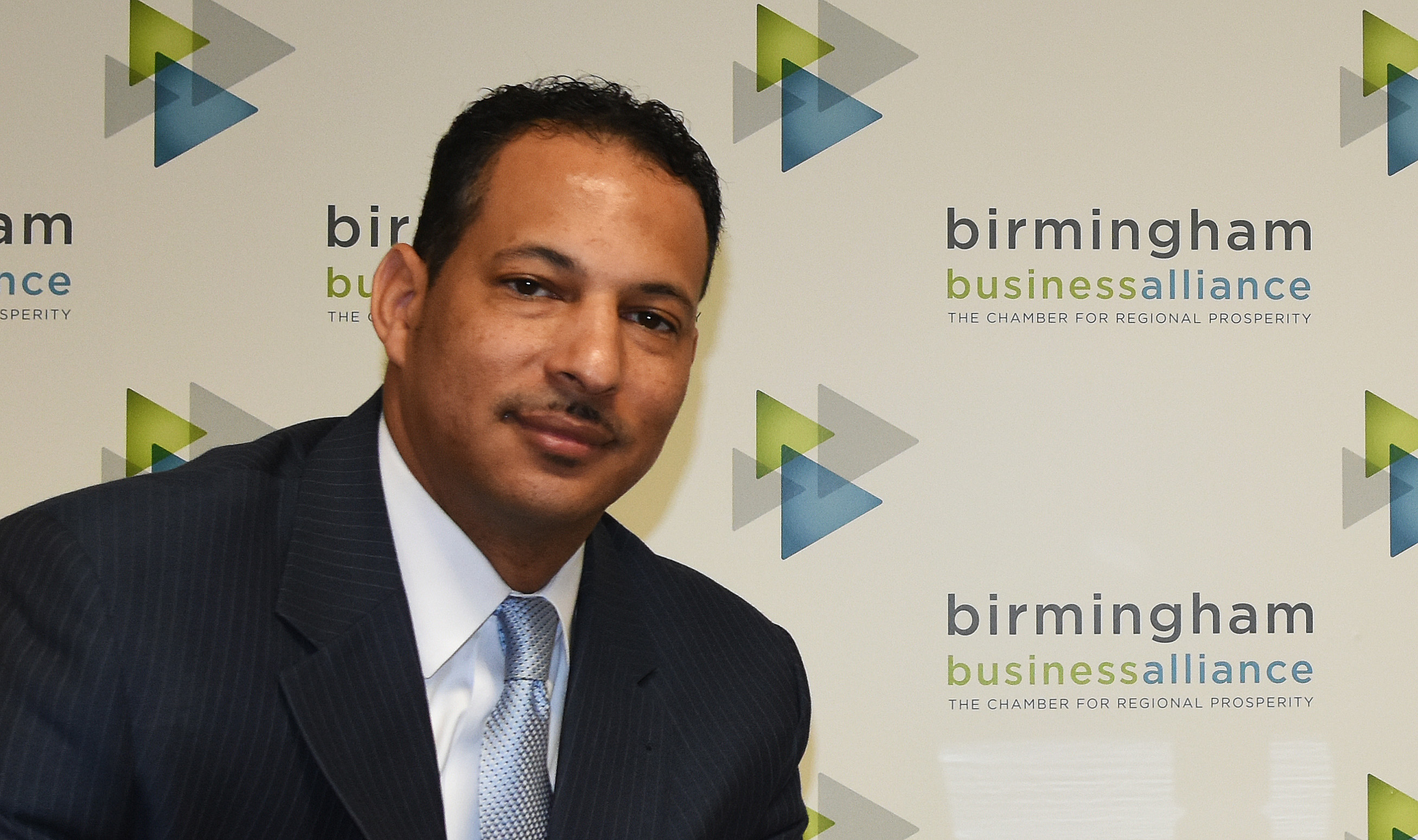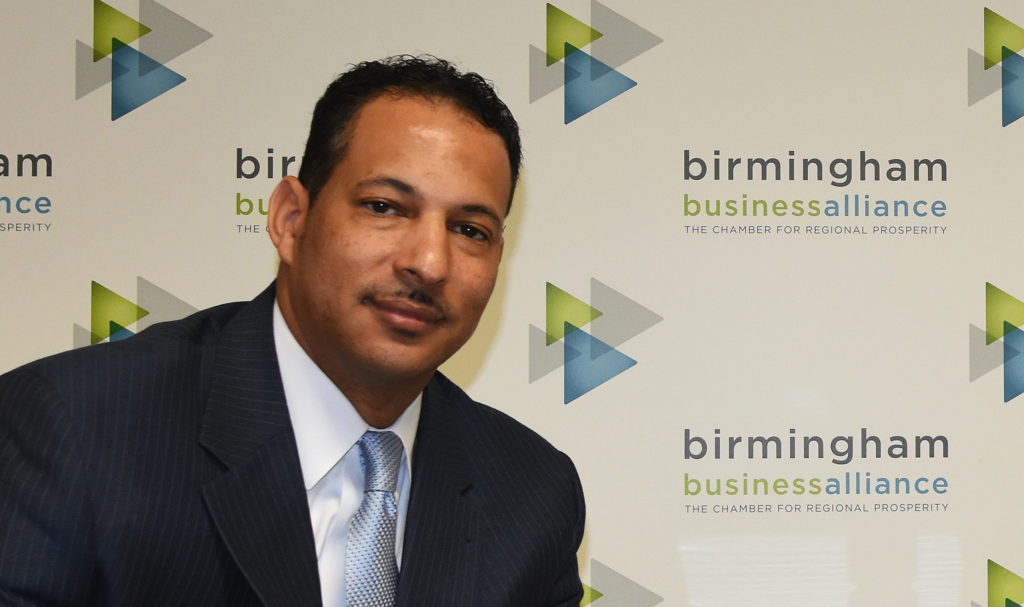
By Barnett Wright
The Birmingham Times

The Birmingham Regional Enterprise Council (BREC) is comprised of Birmingham Business Alliance (BBA) investors who are committed to helping small businesses in the greater Birmingham region succeed. The BREC is the successor council to the African-American, Hispanic, and Women’s business councils and the Small Business Committee. And Marlon King of the BLOC Global Group serves as chair of the 2017 BREC.
The Birmingham Times recently asked King about the BREC’s mission.
How would you describe the BREC’s mission?
The BREC is committed to helping small businesses leverage the success of the Birmingham region’s job growth and capital investment by providing resources and networking opportunities. This is mainly achieved through monthly programs focused on topics based on feedback from BREC members and small businesses regarding the issues they face and questions they have about growing and sustaining successful businesses.
The BREC was originally formed in 2011 under the BBA’s Blueprint Birmingham strategic plan and was comprised of the leadership of all the BBA’s councils and committees (African-American, Women’s, and Hispanic business councils, and the Small Business Committee). In 2017, those groups united to form the BREC so they could better serve Birmingham’s small-business community. This combination enables a more diverse group to have a strong voice in small-business advocacy throughout the city.
The BBA, through its economic and business development programs, continues to serve as a liaison, connector, and partner between minority businesses and the specific resources they need that are available in Birmingham, just as the BBA is a resource for all businesses in the city.
What are the efficiencies of combining the groups to create BREC?
The councils and committees began to meet as one in early 2017. Before that, during monthly program sessions we began to see members of each group facing the same issues, asking about the same topics (human resources, access to capital, marketing resources, etc.), and often attending all of the meetings. Having the groups meet as one under the BREC increases the quality of the programming. For the BBA, it provides the ability to better see the issues facing small businesses and feed that back into our economic and workforce development efforts and public policy divisions. It also gives the BBA more time to meet one-on-one with small businesses to help them meet their individual specific needs.
How many businesses make up the BREC?
While the BREC meetings are open to any BBA investor, the council is comprised of small businesses and businesses owned by women and minorities. Each of the eight meetings held throughout the year (twice in a quarter) average about 40 people from BBA investor companies.
The BREC is a council of the BBA. Does that mean it is part of the BBA?
Yes, the BREC is a part of the BBA and is comprised of investors in the BBA. This exposes businesses and professionals in the council to the full suite of business advocacy tools and resources available to them in our community, which complements their involvement in the BBA.
For more information …
To learn more about the BREC and its future programs, contact BBA Director of Investor Relations Laura Boyles.
Phone: 205-241-8116
Email: lboyles@birminghambusinessalliance.com
Other stories in this series:



